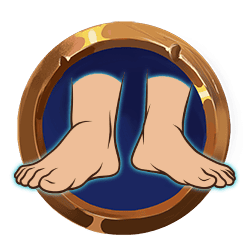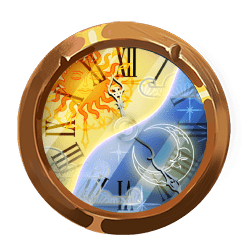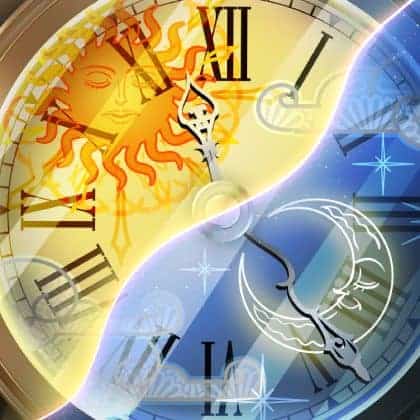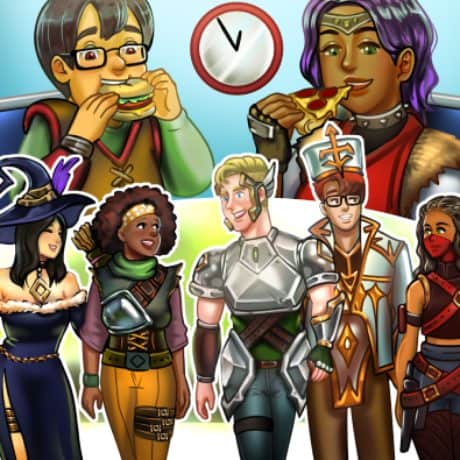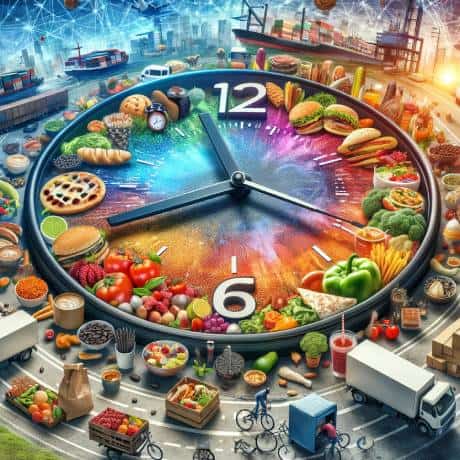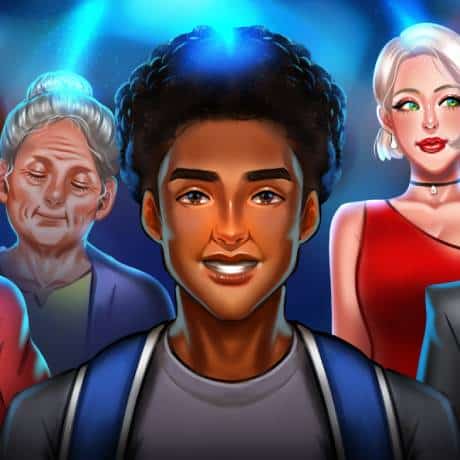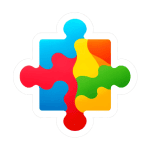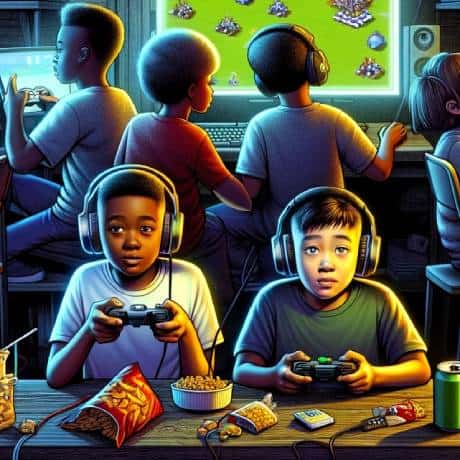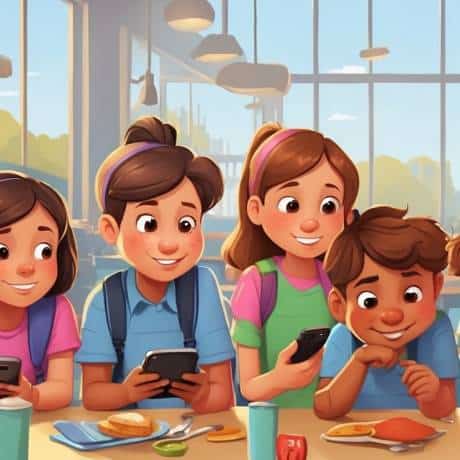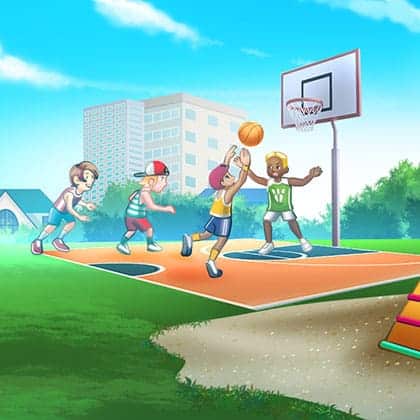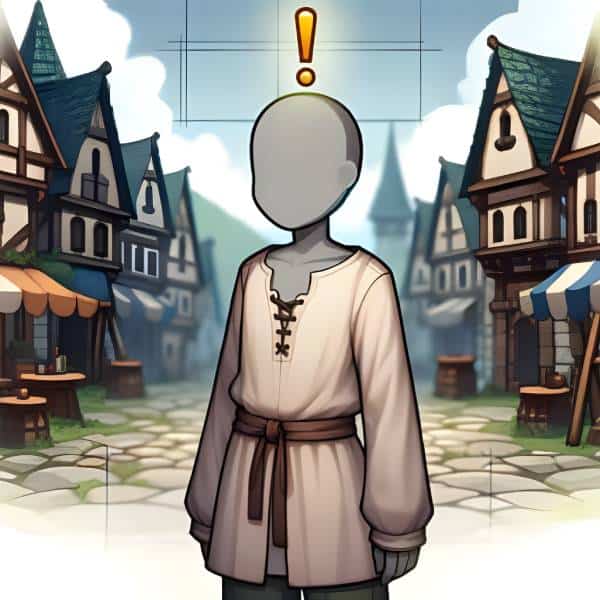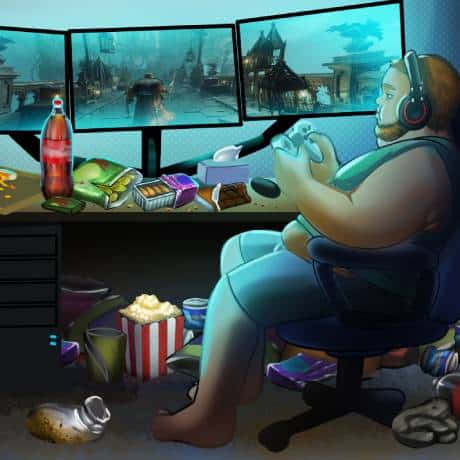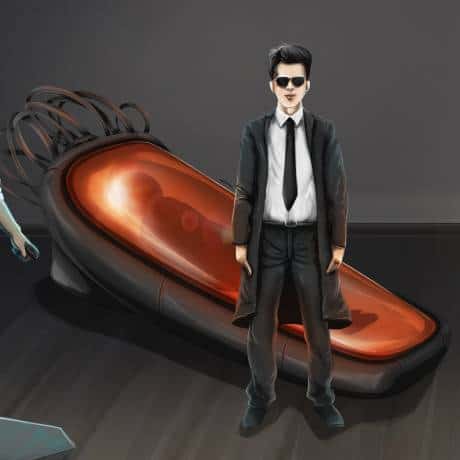
Gameaholic: How I Gained Control of My Game Addiction
As a reformed gameaholic, I have successfully regained control of my gaming habits while still enjoying video games. Here are my experiences and the strategies that worked for me.
Table of Contents
My Gaming Addiction
As a self-proclaimed Gameaholic with over 40 years of gaming, I’ve been a Gamer for most of my life. Over 12 years, I was immersed in the computer gaming industry, beginning as a web programmer and eventually becoming a Games Producer, working on Xbox and PC titles.
It was an exhilarating ride! I spent 40+ hours a week working with games and up to 60 hours a week gaming at home – yes, it’s possible! However, my physical health suffered as a result.
At the time – “If I could have been hooked up to a computer and played games 24/7, I would.”
 Throughout the years, my diet suffered, I gained weight, I experienced back issues, and my overall health deteriorated. In addition, my energy levels fluctuated wildly, and I became moody. Unfortunately, I was largely unaware of these problems, as I was engrossed in the virtual world of role-playing games, first-person shooters, real-time strategies, MMORPGs, and more. All that mattered to me was having functional computer hardware for gaming. My reality revolved around working to earn money for purchasing games and then playing them; I was finishing 2 – 3 games a week at my peak; it was cheaper back then when you could trade games in.
Throughout the years, my diet suffered, I gained weight, I experienced back issues, and my overall health deteriorated. In addition, my energy levels fluctuated wildly, and I became moody. Unfortunately, I was largely unaware of these problems, as I was engrossed in the virtual world of role-playing games, first-person shooters, real-time strategies, MMORPGs, and more. All that mattered to me was having functional computer hardware for gaming. My reality revolved around working to earn money for purchasing games and then playing them; I was finishing 2 – 3 games a week at my peak; it was cheaper back then when you could trade games in.
Everything changed when I bent down to pick up an item and unexpectedly pulled my back muscle. As I lay on the couch, in pain and staring at the ceiling, I realized that my life couldn’t continue down this path.
By adopting just a few new habits, I lost 5 kg (11 pounds) within the first month, and over 8 months, I lost 20 kg (44 pounds). This transformation improved my overall health, boosted my energy levels, reduced the frequency of illness, and made me feel awesome.
I gradually shifted my focus from the virtual world to embracing reality, becoming a Gamer in Life. This transformation led to “Vitality for Gamers” in 2010. In addition, I founded a web company, started a family, and turned my life around for the better.
…and I continue to embrace my passion for gaming in real life and the virtual realm while adhering to an ‘Achieve before Reward’ system and the Vitality Challenge for a Healthy Gamer Lifestyle.
This website reflects my journey and the knowledge I’ve gathered through research, intending to give back to the gaming community that has played a significant role in my life for so long. Moreover, it extends a welcoming hand to everyone, as embracing Gaming in Life is truly for all.
Take Control: Achieve Before Reward
I feel this was a highly effective way to overcome my gaming addiction. The ‘Achieve before Reward’ approach, which I developed in 2010, is essentially a points system that gamifies everyday life. By completing tasks and activities, you earn points that accumulate over time for a set period, typically a day. Scoring is reset daily or for a set period. When the point score reaches a specific threshold, the individual is awarded a token to redeem for gaming, screen time, or another potentially addictive activity.
There is more to this than described here; in simple terms, a person would complete tasks or do activities, then be rewarded. Plus, specific task and activity points could be weighted based on preferred habit creation or need. I did this myself, yet an element of self-discipline is needed; this may be achieved by having your partner, family member, or someone who controls your scoring and rewards.
Through trial and error, I discovered that incorporating gamification into my daily routine significantly improved my ability to balance my addictions with other aspects of life while also creating healthy habits.
We are still finalizing our app, yet you can see an example for kids here, our Screen Time Management guide for parents.
Example Activities:
- Build Something
Developing this website was one of the accomplishments I pursued to earn gaming time. I committed to working on it consistently, and with a daily effort, I steadily progressed and continued to achieve results.
I enjoy working on websites as an IT professional, but your interests may lie elsewhere. If you possess manual skills, consider taking on a hands-on project and dedicate time to it daily. Once you’ve put in a productive amount of work for the day, reward yourself with gaming.
-
Real Life Avatar
 Focus on personal growth. Approach life like a role-playing game, where you aim to enhance your real-life attributes rather than just those in virtual worlds.
Focus on personal growth. Approach life like a role-playing game, where you aim to enhance your real-life attributes rather than just those in virtual worlds.
For example:Physically, create a morning exercise routine, starting with just 7 minutes and gradually working up to 30 minutes or more. Alternatively, consider joining a sports team or gym. Engage in daily physical activity and work up a sweat to enhance your overall well-being, strength, and agility.
Communication, focus on refining your communication and persuasion abilities while developing charisma. Strive to master the art of presenting your arguments effectively. You can even join a public speaking group or engage in conversations with others to practice and enhance these skills.
Understand your weaknesses and strengths. Map out your Real Life Avatar (This is Coming)…
See more on Being a Gamer in Life here. and the Vitality Challenge here.
Are you Addicted to Video Games or just a
Passionate Gamer?
While passionate gamers enjoy gaming and maintain a balance with other life aspects, those with a video game addiction often play out of compulsion, struggling to control their gaming habits, which may lead to negative personal and health consequences and interfere significantly with their daily life functioning. Read more on “Passionate Gamer vs. Gaming Addiction“.
If your gaming habits have escalated into an addiction beyond your control, you should consider quitting gaming until you have it under control.
Quit Gaming: Has Your Life Become Dominated by Video Games?
Whether or not someone needs to quit gaming is a highly individual decision and depends on various factors. Here are a few questions that might help you consider whether or not it’s time to take a break:
- Is gaming interfering with your responsibilities, such as work or school?
- Is gaming causing problems in your relationships?
- Do you often lose track of time while gaming, and neglect other important activities?
- Have you tried to cut back on gaming, but been unable to do so?
- Do you feel irritable or restless when you’re not able to game?
- Do you use gaming to escape from real-life problems or to relieve feelings of anxiety or depression?
If you answered “yes” to several of these questions, it might be a good idea to talk to a professional, such as a counselor or therapist, about your gaming habits. They can provide guidance and help you find ways to balance gaming with other aspects of your life.
Read more “How to Quit Gaming Addiction?“
Remember, gaming can be a fun and rewarding hobby. However, like any activity, it can become problematic if it’s causing negative effects in your life. It’s all about balance and moderation. If you’re having trouble finding that balance, professional help is available.
Overweight Gamer?
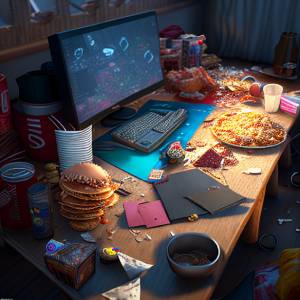 If you’re struggling with excess weight, here is what I did. I found the most success through intermittent fasting and exercise, eliminating sugary foods, fried foods, and bread – cutting out items like burgers, shakes, pizza, soft drinks/sodas, chips, and more. Doing so, I had major cravings and headaches, yet I drank sparkling water; it was my fix as it felt like drinking a soda or soft drink. Once these foods were out of my main eating habit and I was in full swing doing intermittent fasting, my body, energy, and mood changed; it went through the roof.
If you’re struggling with excess weight, here is what I did. I found the most success through intermittent fasting and exercise, eliminating sugary foods, fried foods, and bread – cutting out items like burgers, shakes, pizza, soft drinks/sodas, chips, and more. Doing so, I had major cravings and headaches, yet I drank sparkling water; it was my fix as it felt like drinking a soda or soft drink. Once these foods were out of my main eating habit and I was in full swing doing intermittent fasting, my body, energy, and mood changed; it went through the roof.
My intermittent fasting process:
My boxing coach at the time went through this with me, I don’t box, yet I use the training to stay fit and also gain skill at the same time. Plus, I did my own research and consulted with my physician before doing this.
- Week 1:
I began by restricting my eating to a 12-hour window. If I had breakfast at 9 am, I wouldn’t eat after 9 pm. - Week 2:
I narrowed it down to a 10-hour window, which meant having a later breakfast. - Week 3:
I further reduced my eating window to 8 hours, at which point I stopped eating breakfast altogether. - Week 4:
I maintained a 6-8 hour eating window, having lunch and dinner, with one of the meals being smaller. - Week 5:
I either observed a 6-hour eating window or opted for OMAD (One Meal a Day) - Onwards:
I continue this practice to this day, adjusting my approach daily. Imagine yourself on a hunt, experiencing both days of abundance and scarcity.
Gaming Addiction:
Experiencing increased energy levels and greater self-confidence due to the weight loss encouraged me to engage more with the real world rather than solely immersing myself in the virtual one.
Consider the impact:
If everyone in Western societies opted for one less meal, our Carbon Footprint would be reduced, and we would have the potential to redistribute food resources to needy countries.
Notes:
- Water: I also focused on staying hydrated by increasing my water intake, especially after cutting out other beverages from my diet.
Fruit and Vegetables are nature’s water bottles! Read more… - Nutrition: I reduced my food intake and prioritized nutrient-dense options to maintain a balanced and healthy diet.
- Carnivore Diet: For the first 6 months of this routine, I primarily consumed meat, fish, and dairy products. Gradually, I reintroduced other whole foods into my diet while steering clear of highly processed options. With meat, I ate Liver, Heart, and not just Rumps; I also avoided seed oils and used Butter, Ghee, or similar to cook with, and I continue to do so.
Final Thought
The achieve before rewards point system was the main driving force in controlling my addiction while being a Gamer in Life maintained that drive. Continually leveling myself up in the Real World gives me a tangible achievement. I still love gaming, and the point system allows me to be a Healthy Gamer.
Related Articles
- 10 Top Tips to Take Control of Your Gaming Addiction
- Passionate Gamer vs. Gaming Addiction
- How to Quit Gaming Addiction?

The Gameaholics Anonymous website is currently in the process of transitioning to this new location. Our team is diligently working on enhancing this section, and we anticipate its completion in the near future.
Gameaholic
A gameaholic is someone who is excessively addicted to video games. This person prioritizes playing games over all other activities and may even forego basic needs like eating and sleeping to play. Gameaholics often isolate themselves from friends and family to spend more time gaming, and their grades or work performance may suffer. In severe cases, game addiction can lead to financial ruin, relationship problems, and even mental health issues.
Controlling game addiction requires awareness, self-discipline, and commitment. If you think you or someone you know may be a gameaholic, it’s important to seek help from a professional before the addiction spirals out of control. It is possible to break the cycle of addiction and lead a healthy, balanced life.
Author:
 | Lionel Thomas Father, Gamer and Founder with a Passion for Health, AI, Environment and Gamification of Life. |
Artists:
- Roy Wibowo (Header)
- Lionel Thomas using MidJourney [AI Generated] (Content)


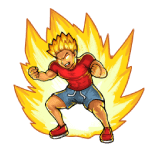

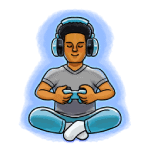
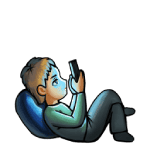
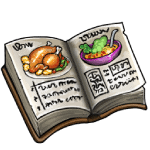

 Snacks
Snacks Water
Water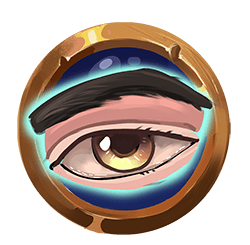 Eye Sight
Eye Sight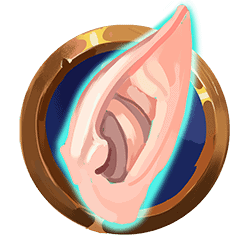 Hearing
Hearing